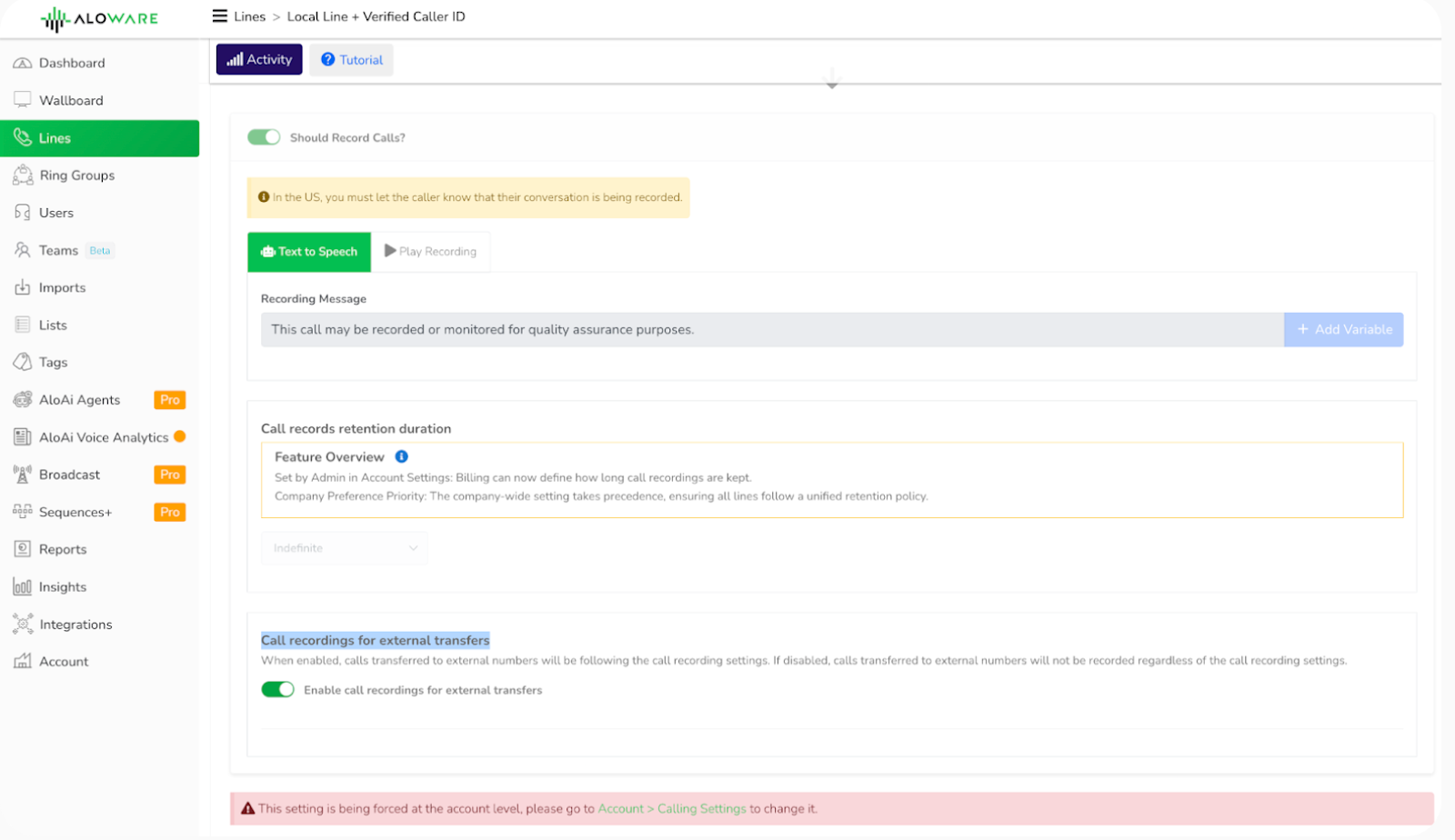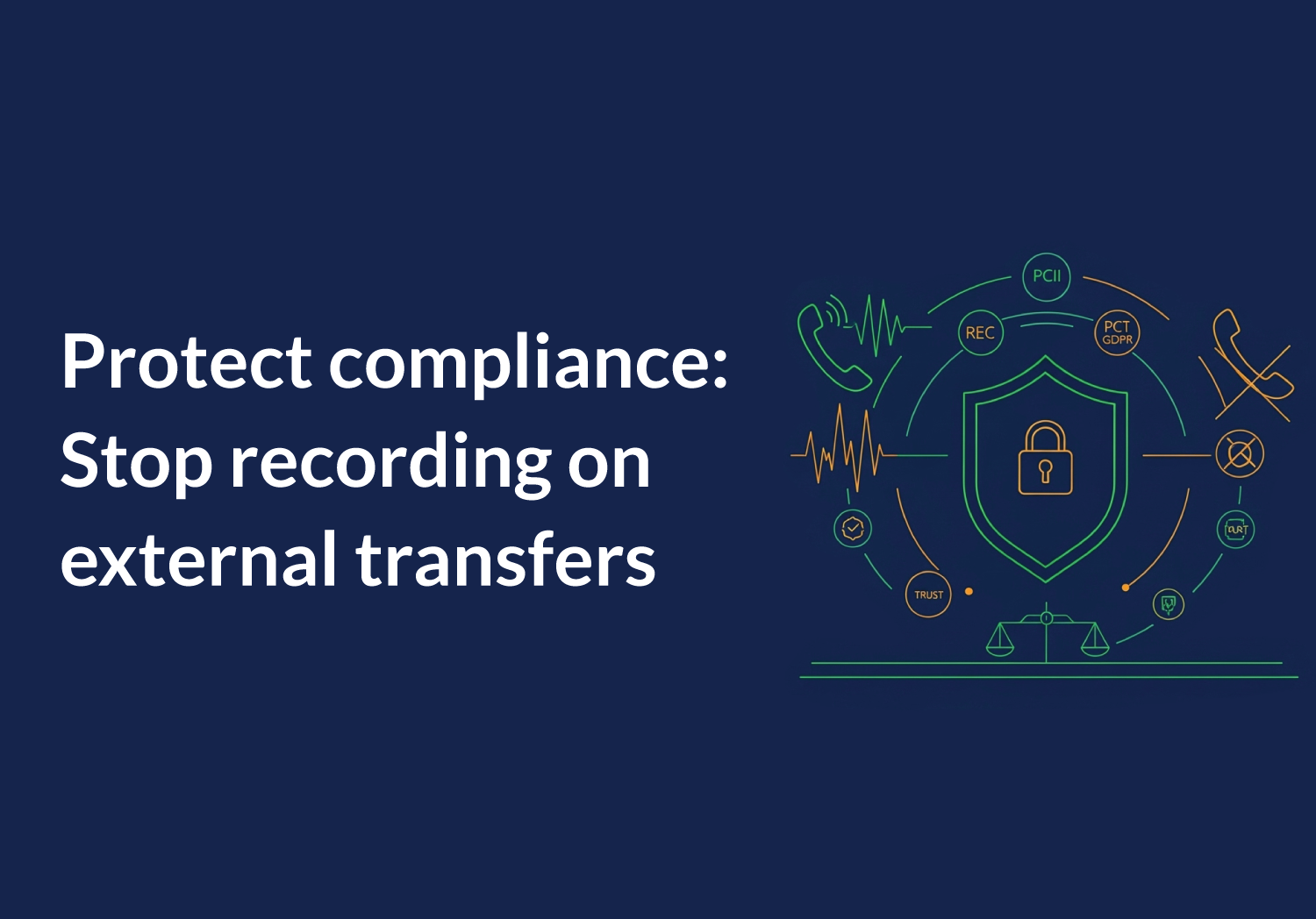Call center managers are under pressure to record conversations for training and accountability. However, they also must protect sensitive data and customer privacy when calls leave the company’s network.
Here’s the challenge:
- Regulators require proof of what was said on internal customer calls.
- Customers demand transparency and data privacy.
- Mishandled recordings can expose businesses to lawsuits and fines.
One of the most overlooked risks? External transfers.
When a call is transferred outside your company’s network—to a partner, vendor, or third party—you can’t control what’s said. Recording those conversations can lead to compliance violations and potential data exposure.
That’s why we’ve introduced a new safeguard for external transfers.
The update: Stop recording on external transfers
To help your team stay compliant, Aloware now automatically stops call recording whenever a call is transferred outside your company’s network.

Here’s how it works:
- Partial recording saved – Only the portion of the call handled before the external transfer is recorded.
- Automatic stop – Recording ends the moment the external party answers.
- Flexible control – Admins can enable or disable this safeguard at both the Account and Line level.

This ensures sensitive conversations stay private, while you still maintain recordings where they matter most to your business.
Why it’s important for compliance
This product update directly addresses three top compliance concerns for call center managers:
- Regulatory compliance – Many jurisdictions (HIPAA, PCI-DSS, GDPR, state-level “two-party consent” laws) restrict recording without clear consent.
- Customer trust – Customers expect you to safeguard their data, especially when calls are routed externally.
- Liability protection – Partial recordings give you internal documentation while reducing liability exposure.
With this feature, Aloware gives you the best of both worlds: compliance and control.
Use cases for call centers
- Healthcare providers (HIPAA): Stop recording when transferring patients to third-party billing or insurance services.
- Financial services (PCI-DSS): End recording when connecting customers to external payment processors.
- Outsourced support: Keep your recordings compliant when escalating to vendors outside your network.
FAQs
Q: What happens to the recorded portion of the call?
The segment handled internally is saved, giving you accountability and training data while cutting off external conversations.
Q: Can I control when this feature is applied?
Yes. Admins can enable or disable the feature at both the Account and Line level, giving flexibility for different use cases.
Q: Does this affect internal transfers?
No. Internal transfers within your company’s network remain fully recorded, ensuring coverage where it’s needed most.
Q: What if I want to record the entire call anyway?
Admins can disable the automatic stop, but keep in mind compliance risks vary by industry and jurisdiction.
Compliance without compromise
With this update, we help call center managers protect customer privacy, reduce risk, and stay compliant—without losing the insights that recorded calls provide.

